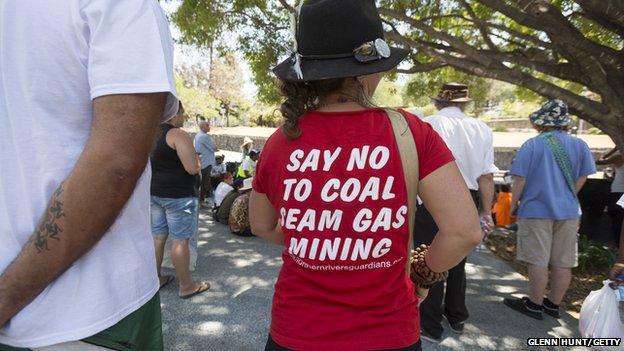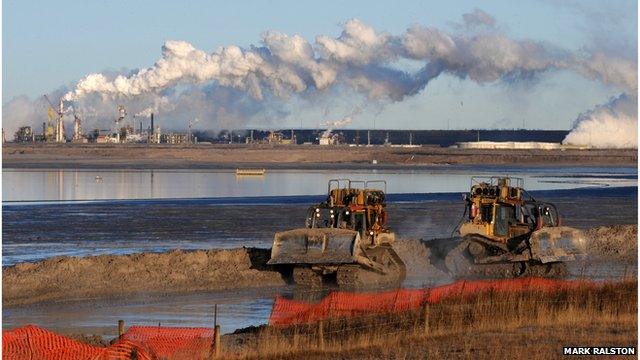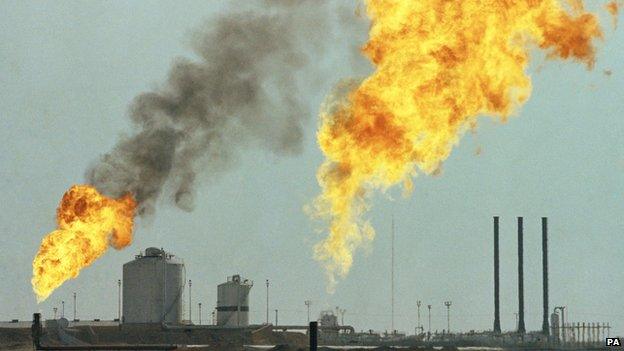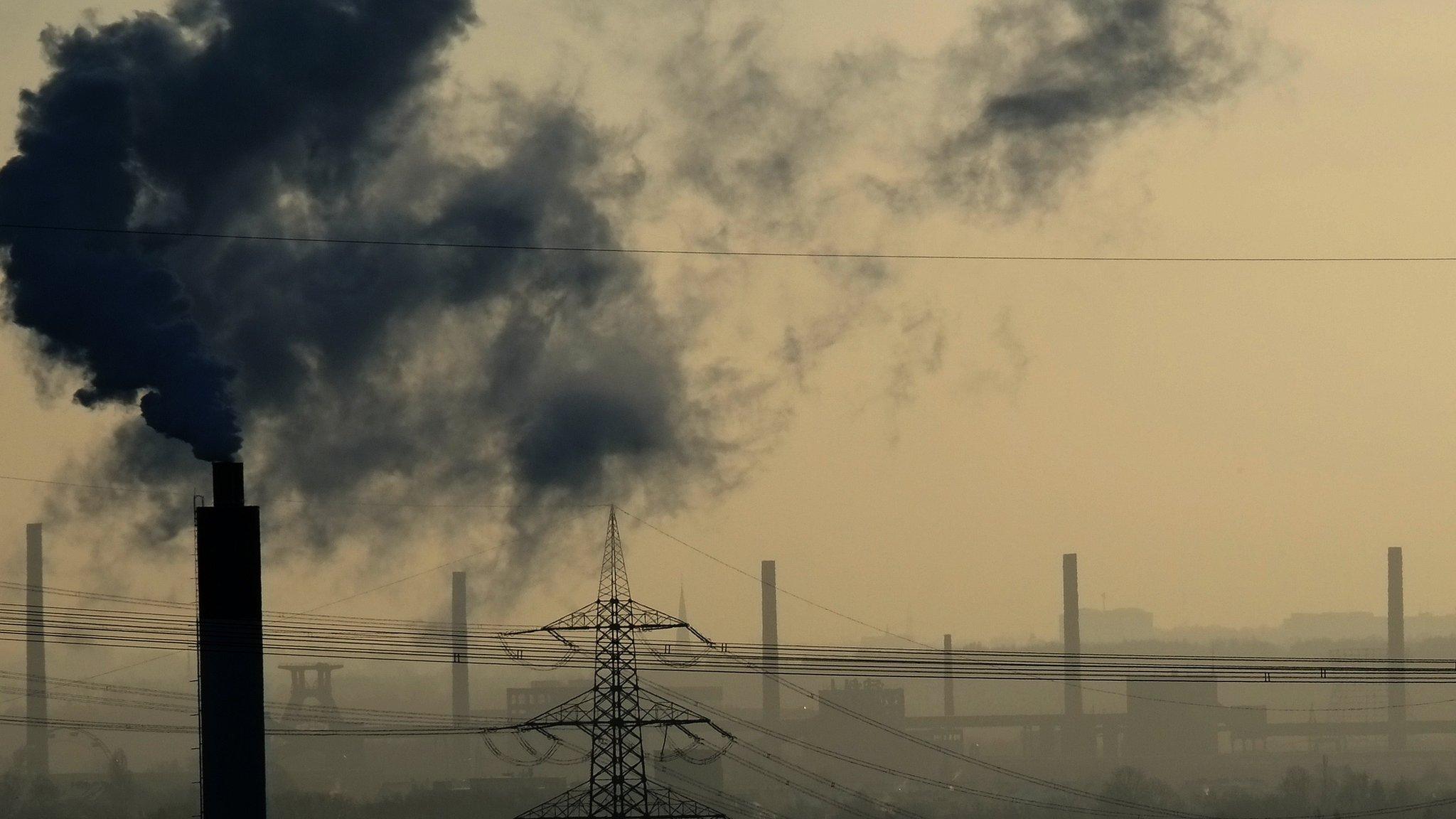Fossil fuels: Scientists draw up investment principles
- Published

Demonstrators gather in Brisbane ahead of the G20 leaders summit
Climate scientists at leading universities are joining forces to discuss the basis of a set of principles governing investment in fossil fuels.
They include academics at Oxford, Imperial College London and Harvard.
Prof Myles Allen, of Oxford University, said the move was similar to principles governing investment in South Africa under apartheid in the 1980s.
"This is a challenging question being put to universities," he told BBC News.
"We have the opportunity here to think about the most constructive approach to the divestment issue."
Divestment is the opposite of an investment - it means getting rid of stocks, bonds, or investment funds that may be regarded by some as unethical.
The academics are due to meet in May to begin a one-year consultation process.
It might end in some form of agreement on a set of useful principles governing investment in fossil fuels in the future, said Prof Allen, professor of geosystem science at Oxford.
He stressed that the consultation, supported by the Oxford Martin School, was entirely independent of university endowment boards' decisions on investment being considered now.
Energy sector
Gabriele Hegerl, professor of climate system science at the University of Edinburgh, is among those due to attend.
She said the meeting was looking at building a framework for how to think about investments in fossil fuels in view of the urgent need to cut emissions.
But she said it was too simple to say we must divest from oil and coal because the energy sector could be part of the solution, through the likes of carbon capture and storage.
"We need to account for the extent to which companies invest in reducing emissions, and contribute to the important goal of limiting emissions and limiting global warming," she told BBC News.

Greenpeace is calling for an end to oil sands mining in Alberta, Canada, due to their greenhouse gas emissions
This week, students at Oxford University called on its governing body to decide whether to join nearly 200 institutions around the world in cutting investments in fossil fuels.
But it deferred the decision, saying the matter would be discussed in May.
Several UK universities, including Glasgow and Bedfordshire, have already committed to the growing campaign to dump fossil fuel stocks.
And last year, Oxford City Council voted to join nearly 40 global cities in selling their investments in coal, oil and gas.
'Unburnable'
In the past, there have been a number of successful divestment campaigns, including tobacco advertising and the South African divestment campaign of the 1980s.
The fossil fuel campaign aims to pressure government and companies to leave oil, gas and coal in the ground.
Over 80% of coal, 50% of gas and 30% of oil reserves are "unburnable" under the goal to limit global warming to no more than 2C, according to one recent analysis.
Follow Helen on Twitter, external.
- Published16 March 2015

- Published7 January 2015
